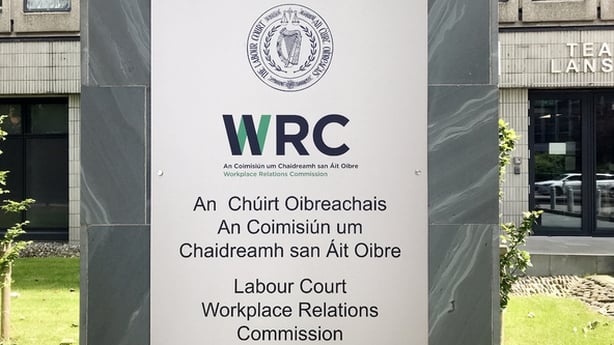A migrant chef with no English was put to work for around €25 a day at a Chinese takeaway while working up to 73 hours a week to pay off an “illegal” €60,000 debt he took on as a “recruitment fee”, a tribunal has been told.
The worker, Xiaofeng Gao, said he was “so afraid” of his boss that he did as he was told and never questioned his working hours.
His employment permit had stated he was meant to be getting €16.76 an hour to work as a chef de partie, the Workplace Relations Commission was told.
Mr Gao was actually receiving just €150 a week for six days’ work – and €60 extra when he was required to work the seventh day as well, his advocate said.
He is now seeking nearly €200,000 in back pay and compensation for multiple alleged breaches of his employment rights by the operator of Eskimo Pizza at Main Street, Ballyjamesduff, Co Cavan, between 1 August 2022 and 7 August 2024.
There was no appearance by the company operating the takeaway, Eskimo Gao Ming Ltd, or its director, before a remote hearing.
Pretty Ndawo, a Migrant Rights Centre of Ireland (MRCI) advocate acting for the worker, told the Workplace Relations Commission (WRC) that Mr Gao came to Ireland in July 2022 after signing a promissory note in China agreeing to pay off a “recruitment fee” worth approximately €60,000 to businessman Ming Gao.
The claimant took on the debt and agreed to make payments to Ming Gao in the belief that this was a “part of the visa requirements” to come to Ireland and work, Ms Ndawo said.
She said this was “a violation of the Employment Permits Act”.
Giving evidence via a WRC-appointed interpreter, the worker said he lived above the restaurant during his employment. He stated that he was paid €150 a week, sometimes by cash, sometimes by bank transfer.
His normal working hours were from 2pm to midnight between Monday and Thursday and from 2pm to 1am on Friday and Saturday nights, the tribunal was told.
“He said every week is different, it’s not a standard €150 per week,” the interpreter said as she translated he complainant’s answers to questions put by Ms Ndawo.
“The employer [took] some wages off him because of the work permit, it’s a recruitment fee,” the interpreter added.
The worker’s evidence was that his employer took his passport in November 2023. Only with the later intervention of gardaí was the document returned, Mr Gao added.
“He worked more hours than other colleagues, because sometimes when they finished work, he had to stay to do the clean-up,” the interpreter said.
“He was asked to do literally everything on the premises,” she added.
“He wasn’t questioning about the working hours because he was afraid, so he’d just do whatever the boss told him to do,” the interpreter said.

“What was he afraid of?,” Ms Ndawo asked.
“Because the employer told him that he needed to work more hours, work harder, to pay back the recruitment money,” the interpreter said.
Mr Gao’s position is that he has been left short by €65,505 in the difference between the minimum wage and his actual wages throughout the entire period of his employment, in breach of the National Minimum Wage Act 2000.
He is also advancing a claim for a sum in the region of €20,000 under the Payment of Wages Act for alleged unlawful deductions from his pay in the final six months of his employment.
Ms Ndawo has argued he is entitled to a further €22,000 for earlier alleged deductions if the tribunal sees cause to extend its jurisdiction from the six months prior to his complaint to a full year.
The WRC could also extend jurisdiction in considering Mr Gao’s claims for Sunday premium pay, unpaid annual leave entitlements and public holiday pay under the Organisation of Working Time Act 2005.
Ms Ndawo was given leave by adjudicator Shay Henry to make further submissions on the value of these claims.
Revenue records showed the worker had been employed directly by Ming Gao before being transferred, without his knowledge, into the employment of Eskimo Gao Ming Ltd, a company where Ming Gao was sole director and his wife was the company secretary, Ms Ndawo submitted.
She said her client was due compensation for breaches of the European Communities (Protection of Employees on Transfer of Undertakings) Regulations 2003 because the employing entities had neither consulted the worker on the transfer nor informed him of it.
She also argued her client was “severely discriminated against on the grounds of his race” in breach of the Employment Equality Act 1998.
Even though the other workers in the takeaway were also Chinese nationals, her client’s position was “more vulnerable because of his immigration status”, Ms Ndawo submitted.
She argued the other staff on site “could move employers more easily compared to him”.
However, she said her client’s position had to be considered against a hypothetical Irish national, who she argued would be “free to change employers”.
Ms Ndawo said the maximum her client could be awarded under that head of claim was twice the annual salary stated in his work permit, which was €34,000 for a 39-hour week.
Closing the hearing, adjudicator Shay Henry said there had been “some indication from the respondent that they were unaware of the proceedings”.
However, he said the norm was that an employer would appear and seek an adjournment in those circumstances.
He said Ms Ndawo should advise her client that “he can’t assume it’s over at this point in time” as the tribunal would have to consider “whatever excuse or reason” was put forward by the employer.




